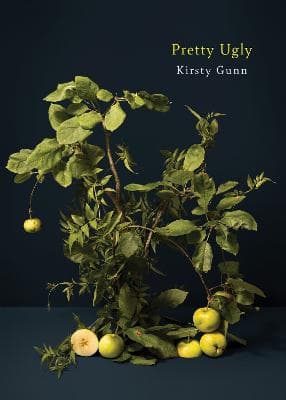Review: Pretty Ugly, by Kirsty Gunn
Reviewed by Nat Baker
The last Kirsty Gunn story I read was that story—the one that caused a fuss. I felt sick, disgusted. For the same reason, I loved it. It was disturbing, in poor taste. But who wants to read bland, forgettable short stories? And besides, you know what’s worse than a story that offends: a society that can’t or won’t confront its awful truths.
In the ‘fall out’ that followed All Gone, Gunn wrote about working on “absolutely ghastly” short stories—the kind her agent, friends and family advised against. Still, she carried on, for in Gunn’s own words, “Ugly stories don’t tell me what to think. They’re there to help me think for myself.” Pretty Ugly is the result, Gunn’s third collection (the others being This Place you Return to is Home, Granta Books, 1999; and Infidelities, Faber and Faber, 2014). It’s also the inaugural title from Landfall Tauraka and Otago University Press who intend to publish an Aotearoa New Zealand short story collection annually.
Born and raised in New Zealand, Gunn lives and works in London and Scotland. The thirteen stories in Pretty Ugly reflect this — from Te Urewera in ‘King Country’ to Sutherland County in ‘Poor Beasts’. Throughout the book, there is an overwhelming sense of the importance of place, the environment bearing down, shaping the characters in each piece, impacting on destinies and harbouring secrets—
‘…the fancy you’re accused of, woman,’ the garden said, ‘is in me’ (from‘Blood Knowledge’)
This theme of nature as nurturing fate pervades. For example, in The Round Pool, where despite literal warning signs a man stamps down barbed wire in hopes of restoring a lost sense of self, and in ‘Wairarapa’—
‘A place that was all questions with no answers, caught up in that land of hills and miles that lay beyond the window, beyond the garden and the old track and the horses and the paddocks and the green…’
where young cousins ponder the meaning of a new arrival to their fold while following the mysterious edicts of their grandmother.
Rest assured, there are some highly readable, beautiful gardens, some floral arrangements (so many roses, in bowls, and a rotten bouquet in the end) but there are also rushing waves of wild animals (birds, deer) that briefly elicit awe before disorienting and presenting us with inconvenient truths about the future—Gunn considers the impact of wind turbines in ‘Flight Path’ and foreign land purchases in ‘Poor Beasts’.
The writer, a writer, is present in many of the stories as protagonist or narrator—a novelist, celebrity biographer, journalist, a fitness trainer taking a writing class. There’s a lot of open play and perhaps fun-making at story conventions—‘event plus discussion’—as in ‘‘It is lonely being a young man sent abroad to fight,’ she said’; gentle jokes about attempts to avoid cliché (and failing, on purpose) in ‘Dangerous Dog’. The reader, gently coaxed into one Faustian pact with Gunn after another will find it worthwhile, the same way Anne draws Mary into whatever meta-level ‘living text’ her biography of Joan Collins has evolved into:
‘For I think of things differently now, I do, all life seen through the experience of that same ‘seismic shift.’…Certainly I would ask, in any future piece of writing I might undertake: Who were we, really? Those people I’ve positioned among the roses? I would include in any text this question: What did our actions show?’ (from ‘Praxis, Or why Joan Collins is important’)
In ‘Afterword: Night-scented Stock’, our protagonist, Mary Masterton says of her collected short stories—Pretty Ugly—she was concerned with society, ambition, capitalism, and ‘how much an individual life could bear…’ This is the gift, the exquisite horror of Gunn’s collection: awful stories about people and circumstances you’ll relate to and be repulsed by. These are tales that will make your heart race as you try to make sense of what you’ve encountered, and for a long time after reading, keep you wondering about where you stand.
Nat Baker is a writer based in Auckland. Her stories have been published at Newsroom, Takahē, Turbine, Headland, Milly Magazine and others.
